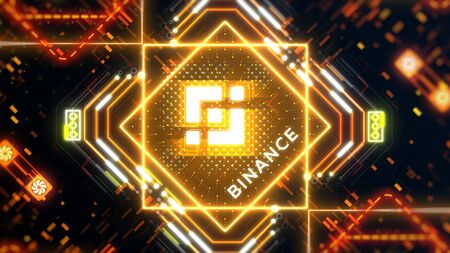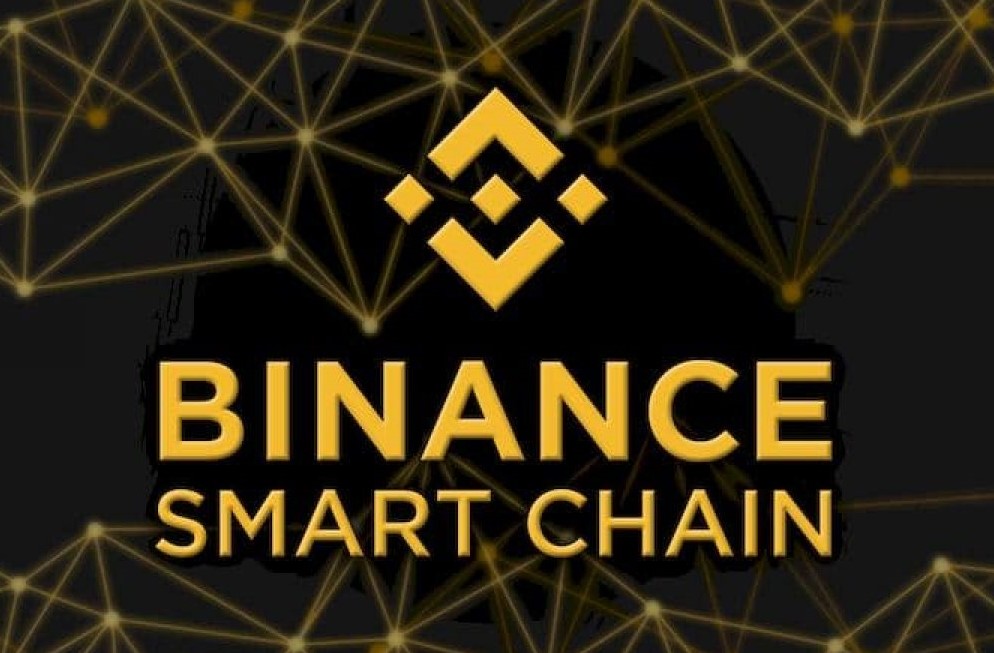Binance comes from two words, binary and finance. It’s binary because it allows the trade of cryptocurrencies, and finance because crypto deals with finances. Binance started in 2017 in China under the founder Changpen Zhao. But later it moved to Japan due to the increasing restrictions China were putting on cryptocurrencies. Binance is a cryptocurrency platform for currency trading. It uses the BNB token as its native coin for discounts on the platform. Binance has a buy-back plan, the plan is to buy 50% of the BNB coins that were realized into the chain; 100 billion BNB coins. Later, they come up with the idea of their own blockchain : the Binance Smart Chain, written BSC.
Binance started on the Ethereum blockchain. Although in 2018 it decided to give its users a better experience by starting its blockchain; the Binance Chain. The blockchain aimed to offer users fast transactions than before, faster than any other existing platform. The Binance Chain was built on the Tendermint consensus model which had swift finality which made transactions validation fast. Binance Chain did not focus on any other app but its primary app Binance Dex. This stopped users from focusing on it and they preferred to stay on the Ethereum blockchain. DeFi was doing better on the Ethereum blockchain than on Binance Dex. Binance Dex lacked operability.
Binance Smart Chain (BSC): low fees and proof of stake
In September 2020, the Binance team came up with a parallel Binance blockchain called Binance Smart Chain (BSC). It was fully programmable. To encourage users to shift to the new blockchain, Binance put lower transaction fees. It also used a different consensus; proof of stake authority. It is worth noting that achieving scalability on Binance Smart Chain (BSC) and any other blockchain cannot easily happen. It has to sacrifice the other properties like decentralization and security or censorship.

Proof of stake authority was not decentralized as Ethereum’s proof of work consensus. Validators on proof of stake authority do not need to be active all the time to validate a transaction. Validation requires 21 validators at a time and validators take turns per day. Active and high BNB holders decide which block is validated. Validators can also ask for BNB holders to delegate them their token to use in validating blocks and in return, they share the transaction fees.
The time required to validate a transaction was highly reduced compared to that on the Ethereum blockchain. This came as more data was being stored on the Binance Smart Chain (BSC) than on the Ethereum blockchain. Validators take turns in validating transactions on Binance Smart Chain (BSC). This Chain allows validators to run nodes individually and they can choose to run nodes on institutional hardware when their machines cannot handle the size.
Cross-chain transfers and DeFi transactions
Binance Smart Chain (BSC) allows for cross-chain transfers. As some mainstream applications lack access to blockchains, this Chain allows users to transfer different tokens across the crypto ecosystem. An example of tokens that can be cross transferred on the BSC blockchain includes BEP-2 and the BEP-8. They exist on the Binance blockchain with the BEP-20 on the new Binance Smart Chain (BSC).
The Binance Smart Chain (BSC) is also a platform for DeFi transactions. Different tokens can be traded on the platform fast and seamlessly. Pancakeswap and Uniswap have a chance to let their users exchange assets and let them grow on the BSC platform. It is worth noting that although Binance Smart Chain (BSC) runs parallel to the Binance chain it is independent and can run on its own.
To get started on the Binance Smart Chain, one needs to download Metamask which allows anyone to run Ethereum Dapps without running an Ethereum node. After downloading Metamask one will need to complete the basic setup and then click on the main Ethereum network. They later click on custom RPC and copy and paste every line into its corresponding box then save. On saving one owns a Binance Smart Chain wallet.
To go further, you can learn about the BNB coin, the native coin of Binance.
This article is not investment advice. Do your own research before investing in the cryptocurrency market. Cryptocurrency is a risky and speculative trade one should always put the money they can comfortably lose.

